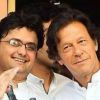10 Best-Selling Islamic History Books Millions Love
Recommended by Faisal Javed Khan, Aydogan Vatandas, and Murtaza Mohammad Hussain — authoritative voices in Islamic History



There's something special about books that both critics and crowds love — especially in a field as rich and complex as Islamic History. Interest in understanding the Muslim world's past has surged, revealing how these narratives shape current global affairs. Readers seek books that offer trusted insights, blending scholarly depth with accessible storytelling.
Influential voices like Faisal Javed Khan, a Pakistani senator and heritage committee chair, have propelled works like "Ar-Raheeq Al-Makhtum" into the spotlight. Meanwhile, Aydogan Vatandas, an editor-in-chief focused on Middle East affairs, praises titles that reveal the human stories behind sectarian divides, such as "After the Prophet." Journalist Murtaza Mohammad Hussain highlights nuanced discussions on gender and society in Islam, deepening appreciation for diverse perspectives.
While these popular books provide proven frameworks, readers seeking content tailored to their specific Islamic History needs might consider creating a personalized Islamic History book that combines these validated approaches. This custom blend ensures your learning journey fits your background and goals with precision.
Recommended by Faisal Javed Khan
PTI Senator and Committee Chairman
“"The Sealed Nectar" Such an amazing book on the life of Prophet Muhammad (S.A.W) Also available in Urdu Translation titled "Ar-Raheeq Al-Makhtum"” (from X)
by Sheikh Safi-ur-Rahman al-Mubarkpuri·
by Sheikh Safi-ur-Rahman al-Mubarkpuri·
Sheikh Safi-ur-Rahman al-Mubarkpuri brings decades of Islamic scholarship to this detailed biography of Prophet Muhammad (S). His acclaimed work explores the Prophet's life through a lens that blends religious tradition with historical context, offering insights into his character, leadership, and teachings. You’ll find chapters highlighting key events like the early revelations and the social reforms he championed, making it a valuable resource for those seeking a nuanced understanding of Islamic history. This book suits anyone eager to grasp the Prophet’s impact beyond surface narratives, whether for personal knowledge or academic study.
Recommended by Aydogan Vatandas
Editor-in-Chief at Middle East publication
“What I am reading now. Great book on such a complicated topic..” (from X)
by Lesley Hazleton·
by Lesley Hazleton·
What if everything you knew about the Sunni-Shia split was re-examined through the lens of personal ambition, faith, and political intrigue? Lesley Hazleton, a seasoned Middle East journalist and psychologist, unpacks this historic rift by focusing on the immediate aftermath of Muhammad’s death, detailing the succession crisis that fractured early Islam. You’ll gain insight into key figures like Aisha and Ali, understanding how their conflicting claims set the stage for centuries of division. This book suits anyone eager to grasp the human stories behind Islamic history’s most enduring conflict without wading through dry academic tomes.
by TailoredRead AI·
This tailored book explores pivotal events in Islamic history with a focus that matches your background and interests. It examines key timelines, influential figures, and transformative moments that have shaped the Muslim world, offering a personalized journey through essential concepts found valuable by millions of readers. The book reveals how these events interconnect and influence one another, providing a cohesive understanding tailored to your specific goals. By combining widely accepted historical knowledge with your unique focus areas, it makes complex historical narratives accessible and engaging. This personalized approach ensures you gain deep insight without wading through unnecessary details, fostering enriched comprehension of Islamic history’s defining chapters.
Recommended by Murtaza Mohammad Hussain
Journalist at The Intercept
“@gypsy_heart6 Great book” (from X)
by Leila Ahmed·
Leila Ahmed's decades of scholarly work culminate in a nuanced exploration of women's roles in Islamic societies, tracing the evolution of gender debates from pre-Islamic times to the present. You gain insight into how historical contexts shaped gender systems and how contemporary discussions reflect those deep-rooted traditions. Specific chapters detail the shifts in Islamic discourse, providing clarity on complex social and religious intersections. If you're interested in the intersection of gender and religion within Middle Eastern history, this book offers a thoughtful, well-researched perspective that challenges simplistic narratives.
by Marshall G. S. Hodgson
by Marshall G. S. Hodgson
Marshall G. S. Hodgson's extensive academic career at the University of Chicago shaped this final volume of a monumental trilogy tracing Islamic civilization's evolution. You’ll explore the rise and influence of the Safavi, Timuri, and Ottoman empires, gaining insights into how these "Gunpowder Empires" reshaped Islamic society and politics. The book also offers a nuanced look at the enduring Islamic heritage influencing today's world, with detailed charts and maps enhancing understanding. If you seek a deep historical perspective on Islamic civilization’s later periods, this volume delivers a richly detailed narrative that challenges simplified views, though it demands patience and interest in scholarly history.
Wael B. Hallaq, a leading scholar in Islamic law, offers a detailed exploration tracing the evolution of Sunni legal theory from its origins to modern times. His methodical approach organizes complex historical and legal developments into a clear, accessible narrative, making intricate concepts like Usul al-fiqh understandable for both students and scholars. You'll gain insight into how Islamic legal thought has adapted through centuries, with chapters that unpack foundational texts and key theoretical debates. This book suits anyone keen on understanding the intellectual underpinnings of Islamic law and its historical trajectory, though those seeking a broader cultural or political history might find it narrowly focused.
by TailoredRead AI·
This personalized book offers a focused exploration of Islamic history, designed to match your background and interests for an efficient learning experience. It covers key historical narratives, from the origins of Islam to major cultural and political developments across centuries. Through tailored content, it reveals the complexities of early Islamic society, the evolution of empires, and pivotal religious movements, all aligned with your specific goals and curiosity. By concentrating on the most impactful events and themes, this book helps you grasp essential knowledge without excess detail, making it an engaging and accessible guide to Islamic history.
by Paul M. Cobb
by Paul M. Cobb
Paul M. Cobb challenges the traditional Crusades narrative by shifting focus from European accounts to the often overlooked Muslim perspective. You learn how medieval Muslims experienced and responded to the Frankish invasions, not just as battles but as complex cultural, diplomatic, and economic encounters. The book explores diverse Muslim reactions—from border negotiations to political maneuvering using jihad rhetoric—across the Mediterranean, offering you a fuller understanding of this pivotal era. If you're interested in Islamic history beyond the usual Western lens, this book provides nuanced insights into the interactions that shaped Muslim-European relations for centuries.
by Jamil M. Abun-Nasr
by Jamil M. Abun-Nasr
What happens when a historian with deep expertise in North African studies turns to Islamic history? Jamil M. Abun-Nasr provides a detailed exploration of the Maghrib from the Arab conquest to modern times, focusing on political, economic, and religious transformations. You’ll gain insights into how Islam became dominant, the region's strategic role between the Mediterranean and Sudan, and the complex interplay between local dynasties, Ottoman rule, and European colonialism. The book balances factual narrative with interpretation, making it particularly useful if you want a nuanced understanding of African and Islamic historical intersections.
by Tamim Ansary·
by Tamim Ansary·
What happens when a seasoned storyteller turns to the Islamic world's own view of history? Tamim Ansary, drawing on his rich background as a memoirist and co-author of a New York Times bestseller, offers you a narrative that reshapes familiar world history through Islamic eyes. You’ll explore centuries of historical developments from Mohammed's time to the Ottoman Empire's fall, gaining insight into why Western and Islamic civilizations saw themselves so differently. The book helps you understand the complex intersections that shaped modern conflicts and challenges prevailing Western-centric narratives. If you're curious about history beyond the usual Eurocentric lens, this book will expand your perspective without glossing over difficult truths.
by William H. McNeill, Marilyn Robinson Waldman
by William H. McNeill, Marilyn Robinson Waldman
The Islamic World offers a unique lens on Islamic civilization through a curated collection of documents spanning centuries, from early Arabia to modern challenges. Edited by William H. McNeill and Marilyn Robinson Waldman, the book features translations of historical, theological, and philosophical texts alongside poetry and narratives from diverse Muslim regions, enriched by thoughtful introductions to each era and text. You'll gain insight into the evolution and continuity of one of the world's youngest major civilizations, making it a valuable resource if you're seeking a foundational understanding of Islamic cultural and intellectual history. This work suits those interested in primary sources and the broad sweep of Islamic tradition rather than a narrow historical narrative.
by Karen Armstrong
by Karen Armstrong
Karen Armstrong challenges the common Western stereotypes about Islam by unpacking its rich, complex history beyond modern misconceptions. Through a concise narrative starting from Muhammad's migration to Medina, she explores the origins of key Islamic sects, the rise of Sufism, and the religion's expansive influence across continents. You gain insights into the cultural and political dynamics shaping Islamic civilization, including the Crusades and imperial zeniths. This book suits anyone seeking a grounded, nuanced understanding of Islam's historical evolution without sensationalism.
Conclusion
The 10 books showcased here reveal clear themes: the importance of authentic narratives about the Prophet's life, deep dives into political and sectarian histories, and explorations of societal roles, including gender and law. These works offer proven frameworks that many readers and experts trust.
If you prefer proven methods, start with "Ar-Raheeq Al-Makhtum" for foundational biography, and combine it with "After the Prophet" to understand sectarian complexities. For validated approaches to legal and gender studies, "A History of Islamic Legal Theories" and "Women and Gender in Islam" complement each other well.
Alternatively, you can create a personalized Islamic History book to combine proven methods with your unique needs. These widely-adopted approaches have helped many readers succeed in deepening their understanding of Islamic History.
Frequently Asked Questions
I'm overwhelmed by choice – which book should I start with?
Start with "Ar-Raheeq Al-Makhtum" for a detailed and accessible biography of the Prophet Muhammad, which lays a solid foundation. From there, "After the Prophet" offers insight into the crucial Sunni-Shia split, helping you grasp early Islamic history's complexities.
Are these books too advanced for someone new to Islamic History?
Not at all. Many titles like "Islam: A Short History" and "Destiny Disrupted" are written for general readers and provide clear, engaging narratives suitable for beginners and seasoned readers alike.
What’s the best order to read these books?
Begin with biographical works like "Ar-Raheeq Al-Makhtum," then explore historical developments with "The Venture of Islam, Volume 3" and "The Race for Paradise." Follow with thematic studies such as "Women and Gender in Islam" and legal histories for deeper insight.
Can I skip around or do I need to read them cover to cover?
You can definitely skip around. Each book stands on its own, so pick based on your interest—whether it's biography, empire history, or gender studies—without needing to read in sequence.
Do these books assume prior knowledge of Islamic History?
Most books are designed to welcome newcomers but also offer depth for advanced readers. For example, "The Islamic World" provides primary sources that enrich understanding regardless of prior experience.
How can I get insights tailored to my specific interests in Islamic History?
While these expert-recommended books cover broad themes, personalized books can tailor content to your unique background and goals. Combining popular methods with your focus areas maximizes learning. Check out creating a personalized Islamic History book for a custom approach.
Help fellow book lovers discover great books, share this curated list with others!
Related Articles You May Like
Explore more curated book recommendations









